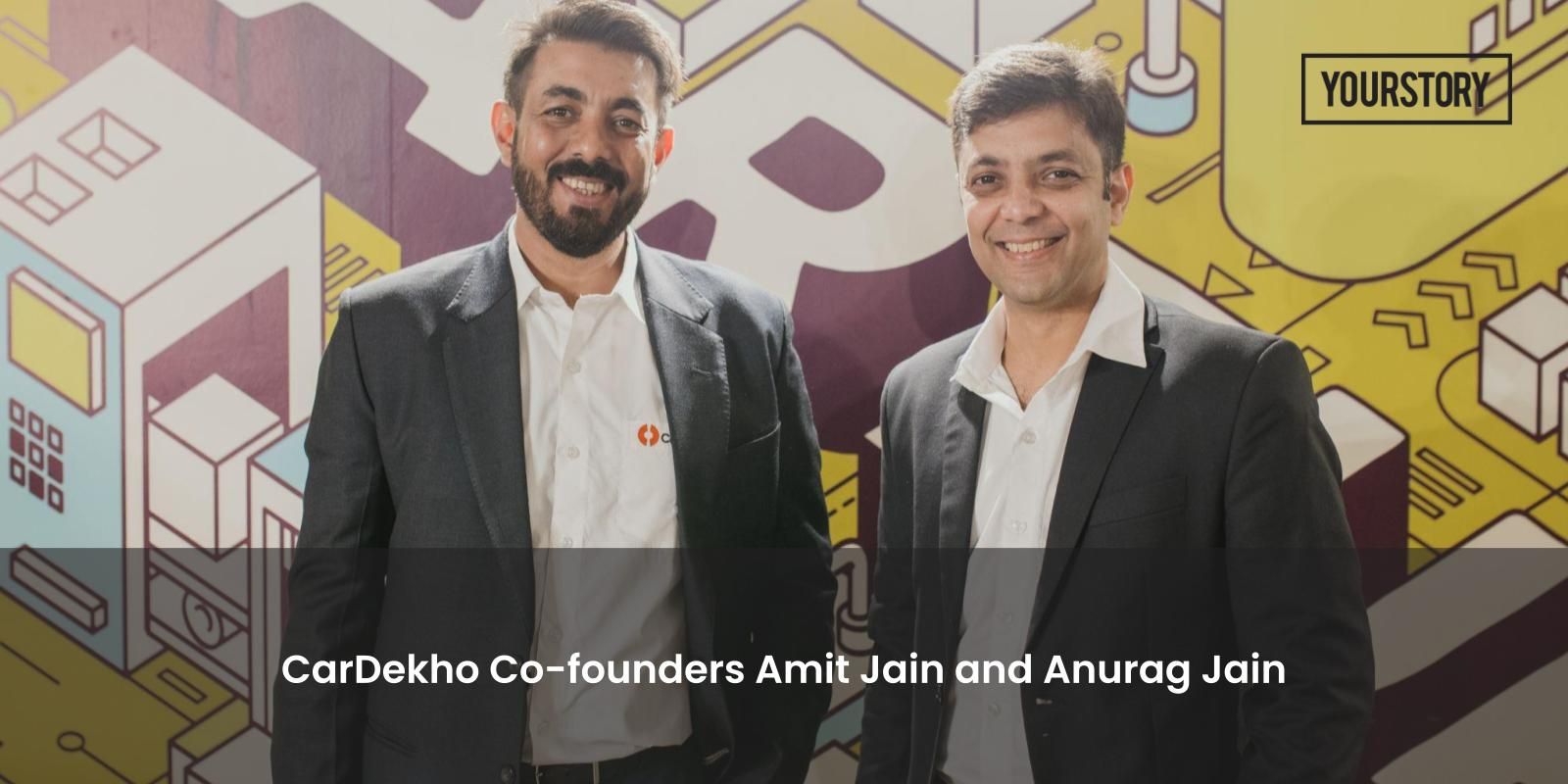“When you think too much about all the things that could gowrong,you can never start a company”: Sashi Reddi of AppLabs Fame

Sashi Reddi thinks clear and local. It is remarkable trait of an investor or an entrepreneur to think clearly. Serial entrepreneur, Founder of AppLabs (recently acquired by CSC), SriCapital and part of Hyderabad Angels, Sashi Reddi took the plunge right after education, that too after graduating with flying colours. It’s a strange twist that landed him in the entrepreneurial journey, and now he has graduated from the entrepreneur to an investor. He talks sensibly and feels local problems provide massive opportunities for an entrepreneur in India. An exclusive YourStory.in chat with Sashi Reddi.You are an alumnus of IIT Delhi, NYU and Wharton. Folks with such pedigree usually end up in big jobs, but what triggered you to take the entrepreneurial path?
Soon after my PhD, in fact in my last year at PhD, I got a job offer which was quite prestigious to be an options trader to be based in Hong Kong and London. It was a very prestigious offer. I was completely excited and all set to go. That seemed like the right first job. Then, a friend of mine from IIT Delhi met me and said that he has got this idea and wants to explore it. As we started talking, another friend of mine who was with me at Wharton expressed interest, and we said why not get together and make this idea a reality. But that time, we had absolutely no idea what it takes to launch a company and make it successful. It was something new for all three of us. In fact, I got into entrepreneurship by chance.
11 years running AppLabs, and as the founder of 3 other startups prior to that, what are your biggest learnings as an entrepreneur?
I think my biggest learning is that, from what I have seen, when you think too much about all the things that could go wrong, you can never start a company, because just about anything can go wrong. Sometimes when people are young and have ideas, they should take the plunge and see what they can achieve, instead of talking oneself out of it.
In India, we think that we have a great startup culture, but actually when you look at other countries, we are not as entrepreneurial in culture and system as we think it is. There is a lot more potential for some of the younger guys to jump in and explore an idea, make something new happen. I think one big lesson for me is that, Don’t think too much. As you are still very young, you know you don’t really lose anything. Once you come out of the experience, you are a much stronger person. Even if you have to go back and start a job, you will have an experience that will help you in your career as well. So, that would be my one lesson, “Do not think too much!”
You have been an angel investor since the last 3-4 years. Do you see any huge opportunities that entrepreneurs can leverage in India?
I have been doing seed stage investing in companies from the last 3-4 years, and suddenly in the last one year, I have felt that the quality of companies that I am seeing has improved significantly. I think this is just a starting point and I think in the next 4-5 years, we will keep seeing those improvements, and we will see more and more smart people doing something on their own.
In terms of the big opportunity areas that I have seen, one tendency seems to be that most of these startups seem to be focused on the new areas, but sometimes I think that there are a lot of other stuff that we could be doing - that is not getting enough support as of now. For example, there is a lot of potential in agro-based areas. We tend to see a lot more of the tech and IT startups, because the guys starting up are the ones who have come out of big IT companies. There is a lot of activity happening in India in tech, but there is a lot of stuff that can be done well beyond tech. At least for me in Hyderabad, I currently only see a lot of IT-based plans.
Your last two investments have been in education and energy. What are your areas of interest as far as investing is concerned?
Unfortunately, I am victim of what I see. I get to see a lot of plans from IITians who reach out to me with their tech plans, and you will see me making that kind of investments. Also, to add to the two investments made in India (edutor and GIBS), I have done two outside of India this year – one is in graphics chip space (a bunch of really smart guys who left Intel are starting this chip design company; they are in the US but are trying to do some of their work out of Hyderabad) and the second one is in the security space. Security is really hot, and these guys are in the enterprise security on the Cloud, and I, along with two other smaller VCs, funded that company. As regards the last four investments, two have been in India and two from the US.
Positives of being an entrepreneur before becoming an investor?
One of the reasons why a lot of entrepreneurs come to me is because I have been in their shoes. I have been in situations where I have been short of money, trying to keep payroll going, trying to attract key talent and contemplating on whether I should go down this path or that path. If you go to an investor who has not been an entrepreneur, he will only look at the spreadsheet and say, you know what if you put this number in that cell you will get a much bigger return than when you put that number in that cell, but they don’t understand the operational issues that these guys have to go through.

What I am doing now as a seed stage investor is that really leveraging my own experiences as an entrepreneur and that makes it very easy for entrepreneurs to approach me and for me to work with them as well. It has been a good fit that way.
You will also see that a lot of these startups in the first couple of years will need a lot of support in the seed stage before they can talk to a VC. A lot of them would have ideas that would need a bit more reflecting as to how to go get the first few customers, and they have to prove that the idea will work before going to a VC. It is a very critical role to help these companies at the seed stage to get to the right maturity to actually tap into venture capital and take on $5-10 million.
Can you tell us a bit more about your involvement with Hyderabad Angels and your own fund Sricapital, and what is the road-map in terms of investments for you in 2012?
Sricapital is like my personal investment arm. It is my own money, and there are no outside investors in SriCapital and I don’t plan to take in any outside investors into SriCapital. It is my own investment arm. In terms of Hyderabad Angels, we have started this fairly late, well after Indian Angel Network and Mumbai Angels. Those are very mature funds, they have got a lot of members, and good number of investments so far. They also have got good infrastructure in terms of people who actually do the marketing, get the right deals etc. They are fairly established that way.
Hyderabad Angels started last year. It’s very very early stage for us. I have been trying to play an active role, and one way to promote the organization is that once you do a couple of investments then entrepreneurs know that this is a serious angel group. One reason why a lot of angel groups don’t succeed is because when you bring a lot of angels in one room, all are very smart of course, but they are not able to make decisions quickly and move on. There is no one who actually owns the process. What I thought I could do with Hyderabad Angels is that I take the lead personally for a couple of investments, and show that as a group we are able to make these investments, and then we will start getting better and better entrepreneurs coming forward, and more and more angels will also take this very seriously as opposed to like a part-time hobby.
We have done 3 investments so far via Hyderabad Angels, out of which I took the lead personally in 2. Now we have shown that we are a serious group and that any Hyderabad startup that is looking for funding should approach Hyderabad Angels first. A lot of times I have seen that good teams from Hyderabad are going to Mumbai and Delhi for funding because they don’t find the ecosystem to be really mature in Hyderabad. Now that some of the companies have been funded, I am hoping that a lot more of these guys will tap into the local ecosystem. Because it is actually good to go local at seed stage, if you are small company with 5-10 people, you need have advisors and investors to talk to on a weekly basis.
Are you at Hyderabad Angels looking for plans only from Hyderabad or from all across?
We look at anything actually, but I would say that for angel networks and the startups, it would be a great help if it is really local. If you look at the Silicon Valley for example, most of the investments that are done are within 30-minute driving distance, because that is very important to be very close to your investors, your mentors, your customers and all of that helps a lot. We look at plans from all across. In fact, GIBS is incubated at the ISB but is located in Mumbai. We are fine to invest in companies from anywhere, but if there is a strong local connection, it will help the startup, and make it easier to get the investors excited.
Major challenges early stage startups face . . .

I would say one big challenge is that lot of them are looking at what has been successful in the US and exploring if they can see something similar in India. I think that is a good approach. For example, there have been many successful copycats in Germany that have made hundreds of millions of dollars for the investors.But, there is not enough happening outside of that. For example, we can look at some of the new implementation models that are specific to the Indian market. And I think we are seeing some of that happening, but we can do a lot more of that. For example, on the payment front, because credit cards being so rare in India, we need to come up with much better ways to do payments. For a lot of these companies like Flipkart and all to succeed, that is a big challenge. A lot of times, they are handling things themselves.
Some of the e-commerce companies do Cash on Delivery, some of the key delivery, parts of the supply chain themselves. All of these things are huge opportunities for a startup that tries to specialize and fill these gaps. So, we can do some of the models that are successful outside, but there are so many gaps in the Indian market that are very specific to the local market. I would like to see a lot of that kind of focus companies coming up.
If you were to start a company today in India, what would you do?
In fact I have been thinking about it a lot myself, because there are so many gaps in the supply chain ecosystem in India. To even deliver a package to some of the smaller towns, it is extremely painful. We have one or two options for this. Nothing provides a timely delivery option in 1 or 2 days. It takes 3-5 days to send across something to some of the smaller towns, and there is no efficient way of doing it. That is a huge opportunity to me. But right now since I sold my company only 6 months ago, I am really focussed on working with CSC to ensure that all the integrations are done properly. In terms of opportunities, I would say there are very obvious massive opportunities when one thinks local.
Advice to entrepreneurs . . .
- Ensure that you always have a cash flow. That is one area that entrepreneurs get stuck most of the times.
- See if you are able to form a small advisory team, I am surprised that more of these companies don’t go out and talk to people at meetings or conferences. Attract people to join your advisory team, because even if you get one hour of time with someone who has so much experience, it will help your business a lot. One call that can open up doors to a new customer. So form an advisory team early on, even if it just one hour a month.
- Sometimes, it is really good to think small, by which I mean, when some of the folks start companies they say I am going to solve the massive problem, but sometimes it is good to focus on one specific niche, totally master it before you look to expand. I would say focus on small thing, be successful and expand from there. And this also helps with the cash flow as they are not spending money on unnecessary big plans. It is better to spend your money on small thing, make it more successful then invest more money.
Final word. . .
I would say that it is an exciting time to be an investor in Indian startups.
We at YourStory.in thank Sashi Reddi for sharing his valuable insights with our readers. Early stage entrepreneurs looking for seed-stage investment and mentoring can feel free reach out to him.











